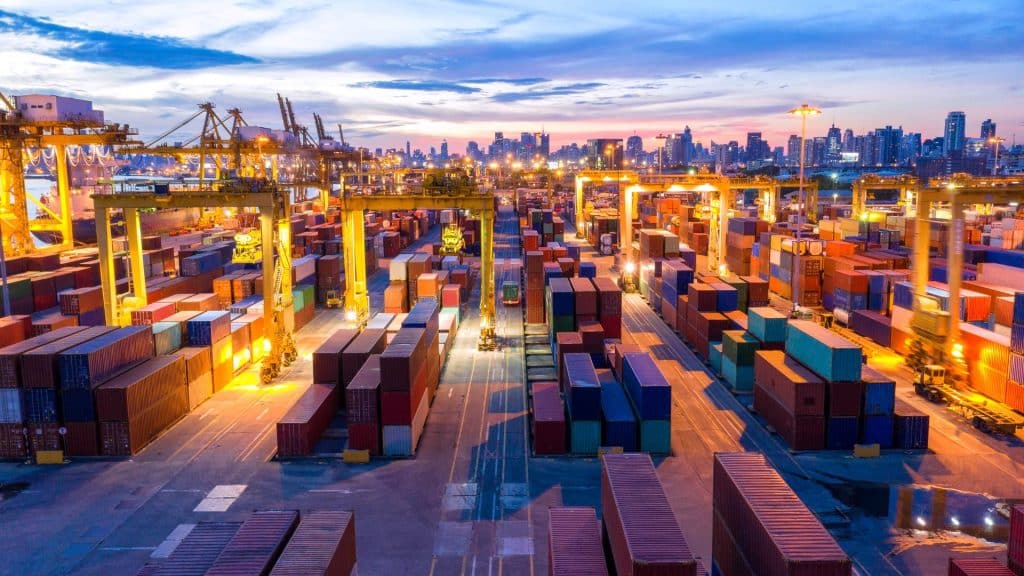SHIPPERS URGE LONGSHORE UNION, EMPLOYERS TO RESUME CONTRACT TALKS
With just weeks to go until a contract extension runs out, a coalition of shippers is urging East and Gulf coast port employers and union longshore workers to resume negotiations to avert another port strike. In a letter to International Longshoremen’s Association President Harold Daggett and David Adam, chairman and chief executive of the United States Maritime Alliance, a coalition of 267 trade associations led by the National Retail Federation said it was “imperative” for the sides to return to bargaining and remain there until agreement on a new labor pact is reached before Jan. 15, when the extension of the current contract expires. Terminal operators and ocean lines represented by USMX and the ILA agreed to the extension after Biden administration officials helped end a three-day strike by the union in early October that halted container and vehicle handling at 36 East and Gulf coast ports. In a release accompanying the letter, the NRF noted that the contract extension ends just prior to the transition to a second Trump administration – a not-so-veiled warning that Trump may act more forcefully in the event of a strike than did President Joe Biden.
FMC INVESTIGATING SPAIN’S ALLEGED BLOCKING OF US SHIPS
The Federal Maritime Commission has launched an investigation into allegations that Spain has been denying certain U.S-flagged vessels entry to its ports. Separately, Spanish authorities say a Danish-flagged ship was denied entry because it was carrying military weapons to Israel. The FMC was informed Nov. 19 that Spain had denied entry to at least three vessels, including some that are participants in the U.S. Maritime Administration’s (MarAd) Maritime Security Program (MSP), the agency stated in a notice posted Thursday. The MSP gives a financial stipend to U.S.-flagged commercial vessels in exchange for providing military sealift to the federal government. There are currently 60 vessels participating in the program, according to MarAd, part of the U.S. Department of Transportation. FMC is investigating reports that two MSP container ships, the Maersk Denver and the Maersk Seletar, operated by U.S.-based Maersk Line Ltd., were denied docking privileges in early November. Remedies under U.S. law include blocking Spain’s vessels from docking at U.S. ports and fines of up to $2.3 million per voyage, according to the FMC.

CONTAINER RATES BUOYED BY TARIFF, STRIKE THREATS
The dual threats of tariff hikes and port strikes continue to buttress ocean freight rates through what is historically a post-peak trough. Asia to U.S. West Coast rates fell 4% to $4,905 per forty-foot equivalent unit while Asia-U.S. East Coast prices climbed 13% to $6,095 per FEU for the week that ended on Friday, according to the Freightos Baltic Dry Index. Some frontloading ahead of a possible strike by the International Longshoremen’s Association after an extension of the coastwise master contract expires Jan. 15, “and expectations of tariff increases next year have kept transpacific ocean rates elevated to start December, with rates to the West Coast – even before the Lunar New Year 2025 rush – already above their pre-Lunar New Year 2024 highs seen back in January at the start of the Red Sea crisis,” wrote Judah Levine, head of research for Freightos, in analysis commentary to clients. “Some carriers are reportedly introducing significant general rate increases (GRI) to try and push rates higher to start the month.” Longer lead times due to ongoing shipping diversions from the Red Sea put a premium on shippers ensuring necessary orders to the Mediterranean are moved before Lunar New Year.
US AGAIN DEFEATS HOUTHI ATTACKS ON AMERICAN CARGO, MILITARY SHIPS
For the second time in 10 days, the U.S. military said it defeated attacks by Houthi militia on American-flagged merchant and naval vessels. Destroyers USS Stockdale and USS O’Kane turned back a range of Houthi missiles and drones Dec. 9- 10 in the Gulf of Aden, United States Central Command said in a release. The Gulf is south of the Red Sea and Suez Canal, a region where Iran-backed Houthi attacks have disrupted commercial shipping since late 2023 in support of forces battling Israel in Gaza and Lebanon. While the route still hosts heavy local vessel traffic, major container lines earlier this year diverted most services from Asia to the Mediterranean and United States on longer voyages around the Horn of Africa. The added operational costs passed onto shippers have turned into windfall profits worth billions of dollars for liner operators.